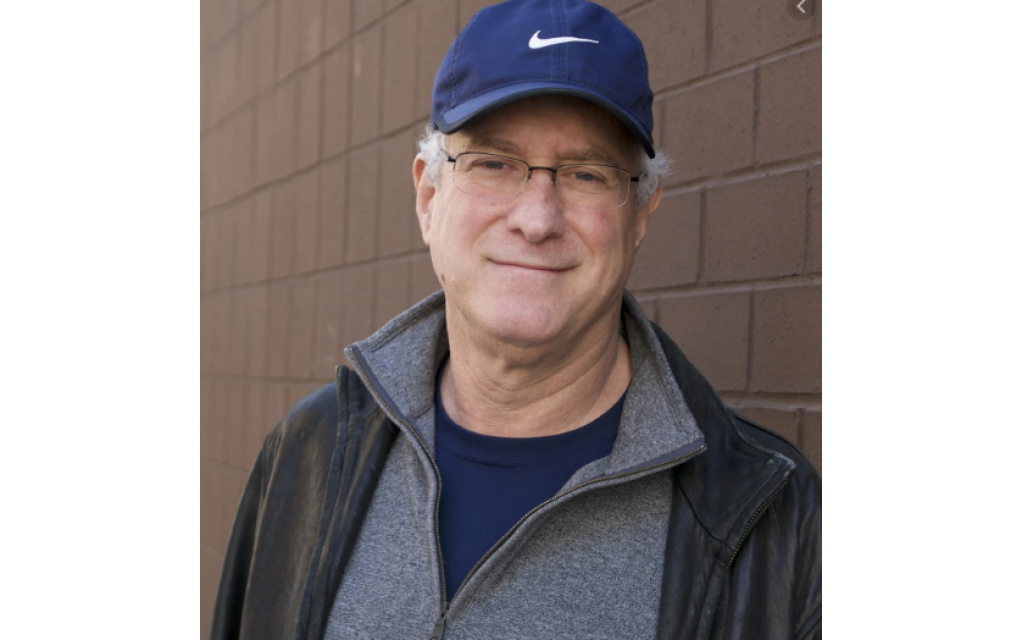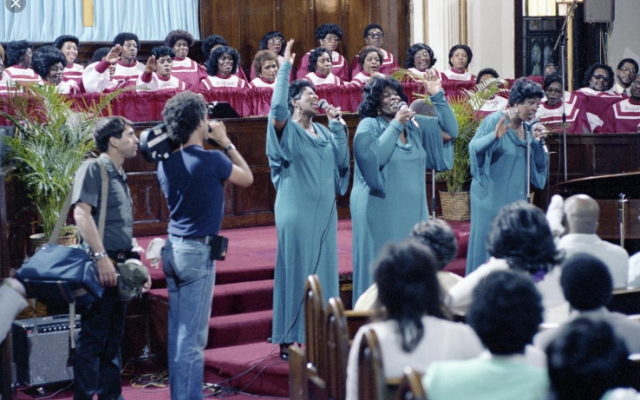Jewish Director: ‘Say Amen, Somebody’
Now 37 years after "Say Amen, Somebody" first debuted, the documentary is back in theaters, in a new, brilliantly restored edition.
When it first premiered in 1982, “Say Amen, Somebody,” was hailed as one of the best documentaries ever made about music in America. The director of the film, George Nierenberg, told the story about the roots of modern black gospel music.
David Denby, film critic of New York magazine, described it as conquering “doubt and unhappiness and when it ends, you feel healed.”
Now 37 years after it first appeared, the documentary is back in theaters, in a new, brilliantly restored edition.
We caught up with Nierenberg recently, considerably older and perhaps even wiser than when he first made his acclaimed documentary.
AJT: When you made this film in the early 1980s, you weren’t even 30 years old. What did this young, Jewish kid know about black gospel music then?

Nierenberg: When I decide to make this film, I knew nothing about gospel music. Zero. I had never been to a black church. Never listened to gospel music. Zero. It was Ry Cooder, the white singer and guitarist, who suggested that I look into it. He said to me those cats are really neat. So I started going to churches. I had never been into a black church before. I had never heard the music or been around that experience before.
There were prayers that I heard that, as a Jew, I didn’t embrace, but I separated my Judaism from the religious aspects of the music and the words. I did embrace the spirituality of it, and I did focus on the people. My film is really about people. It may tell about the mission people have to perform gospel music, but it’s really a film about people.
AJT: And as a Jew, how were you accepted into this world that was so foreign to you?
Nierenberg: What I was trying to do was be a vehicle for the people in the film to tell their story. I wasn’t imposing a story on them. … So, I was trying to be authentic with who they were. And I had spent a year with them before I shot a single frame and just hanging out taking photographs of them. And I was totally accepted into the families of the people I was working with. You know once I was accepted 100 percent, I was part of the family.
AJT: What kinds of stories do you think you ended up telling?
Nierenberg: It’s a documentary that tells a story of family devotion. It tells a story about women. It’s very much about feminism. It’s very much about family values. You know there’s a lot that the film is about other than gospel music that speaks on many levels. It’s not a film about gospel music per se.
AJT: Now, looking back 37 years later and seeing the film you made then, what are the feelings that you have about it?
Nierenberg: I have a feeling of pride; no, it’s a feeling of fulfillment that the film actually is able to transport people back to a time and place in which they can have an emotional experience when they watch my film.
So even though the film was done in the early 1980s, in a sense, there’s a timelessness to the film and what people get out of it. It’s very fulfilling for me that the film has that kind of impact. It’s not just an intellectual experience, but an emotional experience of time and place.
AJT: And, what, as a Jew, do you think gospel music can teach us about our own religious tradition?
Nierenberg: One of the things I experienced while working on the film, which I found, you know, striking, was how people were transformed when they heard the gospel music and how it changed the way they felt. I can’t speak for how other Jews feel about Jewish music. But I will tell you, from my perspective, it’s very much the same for Jewish music.
If I were asked why don’t you make a film about the emotional impact of Judaism as told through its music, I probably would find I would be able to tell a very similar kind of story to the one I told about gospel music, because of the emotional connection that people have.
I have heard cantors that are absolutely exquisite. You know, in the temple that I go to there’s a woman like that and she’s incredible. So, I would imagine that if I had the good fortune, the opportunity to make a film about the emotional connection people have to our Jewish music, it would be a wonderful thing to be able to tell that story, too.
“Say Amen, Somebody,” opens Oct. 25 at the Landmark Midtown Art Cinema in Atlanta.




comments